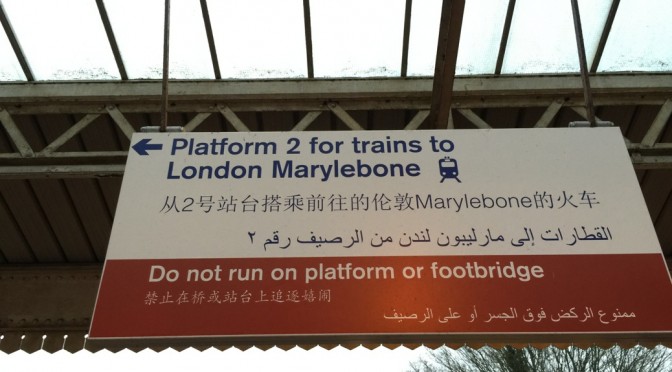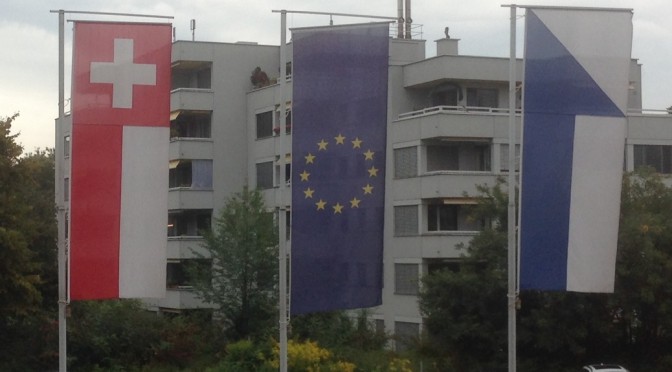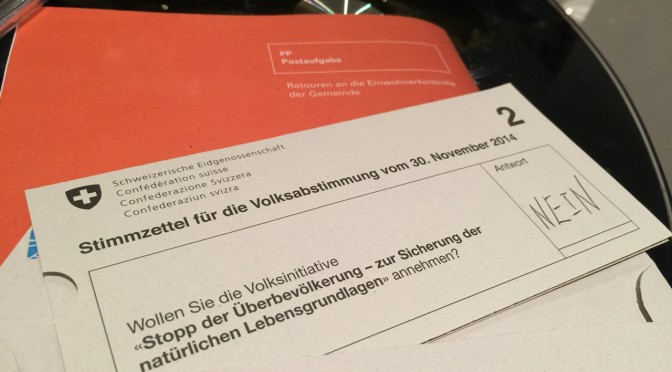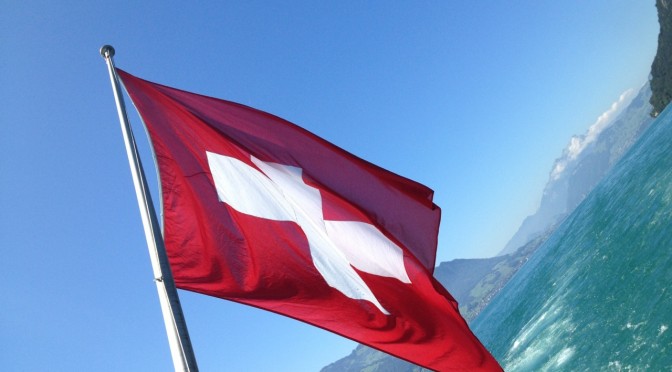All change, please!
This post has been updated and is now on a new version of this site.
This notice will remain online until 20 September 2016.

All change, please!
This post has been updated and is now on a new version of this site.
This notice will remain online until 20 September 2016.

All change, please!
This post has been updated and is now on a new version of this site.
This notice will remain online until 20 September 2016.

All change, please!
This post has been updated and is now on a new version of this site.
This notice will remain online until 20 September 2016.

Unfortunately, it’s not written (100%) in Swiss-German — but then again, as someone versed in English, that’s not all bad news. s’wärä do scho nöd iifach, öppis immer uf Schwiizerdütsch go läsa, gäll? (It wouldn’t have been easy to read something that was always in Swiss-German, right?)
Unable to keep my Helvetic beak shut, and knowing that I have already polluted Facebook with a crass excess of posts about my Swissness (some of us in London would rather not think about the TV Licence Fee, for example, but a Swiss pays it the moment he’s sure the TV is working normally — these Swiss sure stick by the rules!), I decided the best place for these views from the Alps and beyond would be — on a separate blog.
My story as a Swiss is very unique. In 1988 I came into this country as a foreigner (bearing a Chinese passport). In 2000, through a somewhat odd mix of spending crucial years as a teen in Switzerland, as well as mastery of Swiss-German, I became Swiss. To me, holding a Swiss passport for the first time in August 2000 was surreal. But real, too, because I had grown into the Helvetic environment. For the longest time I had planned to stay in Switzerland as a Swiss, not willing to budge from the Zürich area. But then, a complete move of the family back to Beijing meant that I was suddenly a Swiss abroad. This was first as a Swiss abroad in remote countries (China), then being one where we could meet more of our pack (in the EU; specifically, in the UK). It was and still remains a weird and wonderful experience, looking Chinese — with a Swiss passport bearing the name David Feng in my hands.
Unlike other English-language blogs about Switzerland, this one is neither run by government, nor by Anglophone Swiss-watchers. You’re looking at the country from a completely unique point of view: as someone who started out as an Ausländer (foreigner), then becoming a naturalised Swiss citizen (Schweizer), then finally joining the ranks of the Swiss abroad (Auslandschweizer), first in the “remote foreign lands”, then back in Europe. These are views which are very much unique — from someone with an Asian face ticking to the way the average Swiss would do things.
These include not crossing streets on a red light, not putting feet on train seats, paying all bills in good time, and getting the wife from China not to cook late-night specials at anything louder than 70 decibels in the kitchen. These also include never writing anyone (except for close friends) on Sundays (certainly never for business purposes), and firm observation of the rule of the road — to extents you drive your fellow drivers in Beijing up the wall.
8152blog.ch is where it’s all at. I’ve named this blog after the Swiss postal code for the town of Opfikon, where I lived for well over a decade. Updates come now and then (like full-run S2 trains on the Zürich suburban railway network), but when they do come, I hope you enjoy them (en guete mitenand!).
All change, please!
This post has been updated and is now on a new version of this site.
This notice will remain online until 20 September 2016.

All change, please!
This post has been updated and is now on a new version of this site.
This notice will remain online until 20 September 2016.
07:00 Swiss time, Sunday, 09 February 2014.
It’s probably no state secret that the alpine republic in the centre of Europe has seen its population swell — the opening and realisation of free movement of people between Switzerland and the rest of the EU and EEA has seen visible changes for Switzerland.
But just how good are the changes? Here, there are as many naysayers as they are optimists. Naysayers will point out to overloaded trains, poor sanitation, and a Switzerland that is running out of space for quality living areas — some fear the eventual “Hong Kong-isation” of the neutral isle. They also point out to an increasingly growing presence of those of the “big canton up north” (that’s Germany) being unwilling or having problems speaking in Swiss-German, as well as a loss of sovereign rights to say who can or cannot come to Switzerland.
I’m part of the optimists that say there are better ways for Switzerland to deal with its immigration problems than to chuck the excess load out. Reimplementing quotas would be the beginning of the end between Bern and Brussels; in spite of me being a EU-rosceptic I still believe the end of free movement between Switzerland and the rest of the EU is a bad idea. Bern and Brussels work with the bilateral agreements under the condition that a guillotine clause is included. In other words, if Switzerland breaks or withdraws from one agreement, all agreements with Brussels could be at stake — Brussels may also choose to pull out from the entirety of agreements as well. Swiss citizens may, then, in future encounter more red tape when entering other European nations; the era of the “EU / EEA / Swiss nationals” fast track access channel may soon come to an end. It would also impose unnecessary red tape amongst foreign citizens coming into Switzerland. Buying a house and setting up shop in Switzerland would soon be something much easier said than done if the proposal was passed; and I’m speaking like this even as a citizen of Switzerland.
No amount of xenophobia, even racism, will solve the prickly problems of the present day. It is time we did less “take-away” sums and “added” more for people in Switzerland, both local and foreign. Let’s integrate, not separate; show smiles, not scorn. As a Swiss abroad I treasure the diversity of international metropolises such as Beijing, Shanghai, Hong Kong, Taipei, Zurich and London. These cities thrive because they’re inclusive, not restrictive (this is true even for the capital of Communist China).
It’s not a good idea to bite the newcomers to Switzerland. As a Swiss citizen resident overseas I have sent in my vote already. I urge all to take a stance and not let Switzerland backtrack on its pledges or become some kind of laughingstock, be it in Berlaymont or anywhere. Introducing quotas would mean the Swiss are ready to take a langlauf that could eventually send it ploughing downhill, and only God knows how painful it might be in the end.
By voting NEIN / NON / NO to the “Gegen Masseinwanderung” popular initiative, which foresees unsightly quotas and restrictions amongst foreigners in Switzerland, we keep things the way they are — which is very much a Swiss tradition — and we remain open, economically, and socially as well. Don’t bite the newcomers — don’t let a discriminatory bill have the upper hand over reason.
I have already voted. I leave it up to you and all the rest of us in making sure Switzerland remains an inclusive and open society.
All change, please!
This post has been updated and is now on a new version of this site.
This notice will remain online until 20 September 2016.
First off: Happy Birthday, Helvetia! At 721 and counting, you look better than ever before, with your best days still ahead of you.
In nine days’ time, on 10 August 2012, I will have been Swiss for 12 years. That date in 2000 marked for me a day of no return.
Chinese ethnicity binds you to a nation of unparallelled glorious history. We were the ones that made the stuff you now feed into the Xerox machine, and we also invented gunpowder, although we don’t like how this world’s using it at random, in arbitrarily beating up peoples. On more “harmonious” notes, we pioneered the concept of peace and harmony. Confucius advocated for harmony, and even if the past few years didn’t see it realized to perfection, at least China has behind it decades of decent growth, even if that growth came with a few street protests when alien plants decided to build toxic plants in the wrong parts of the country. At night, it’s my Chinese blood that keeps everything up and running, even if I’m off for more train journeys in my dreams.
But Switzerland takes all of this to the next level. While Beijing is desperately trying to outfox the London Underground by moving their trains underground, Zürich has a proud tram system so good, even the Starbucks Zürich mug features these legendary trains. (Even the Peak train on the Hong Kong mug is Swiss — it’s from vonRoll!) The Swiss Federal Railways, even without China’s deluxe high speed lie-flat beds, is about as good as it gets out there on the rails, and the Swiss people are efficient, if not a tad reserved, people. The Swiss are also a nation willing to stand up for themselves, despite their vast intercantonal and multilingual differences. That’s why 721 years ago, the Federal Charter of 1291 came into being. It promised the men of Uri, Schwyz and Unterwalden (now Nidwalden and Obwalden), Switzerland’s first three cantons as a confederation, mutual assistance and defence and established the most fundamental moral principles for the nation.
Switzerland stands for smallness, but also success. It’s not attention-seeking, but it has some of the world’s very best cities. It’s a terrible offence to ask a Swiss how much money he earns every month, but the Swiss are also some of the most affluent people out there. But the Swiss have something better to do than to stock up on, say, LVMH bags; they perfect their land. They stand for precision. Every summer, motorways are done anew, with better road surfaces all part of the regular programme. Road signs are always in pristine condition, and they’ve also picked a world-class font, Frutiger, to make them even more legible. The bit of Motorway A3 from Zürich-West to Cham-West opened just a few years ago, but it was built with Swiss precision. Unlike subway tunnels that fall into themselves just after they’re done, as they are in some lesser lands where GDP is something merely to make “the top” happy, these Swiss tunnels are built to last. And you can sleep happy knowing that their construction was approved, as in many a Swiss issue, the population has to be consulted with, so the disasters in some developing countries where government mansions are invaded by angry locals (because corrupt officers happened to make it easy for alien entities to infiltrate their cities with toxic plans) remain something outside of Swiss boundaries only. Indeed, the Swiss population is a fearsome lot: 100,000 signatures from eligible voters are all that’s needed to even overturn the Federal Constitution! But they are also a rational lot: although they were irrational in what they did with the so-called “minaret ban”, they at least did not stoop so low as to accept the “free beer for all” initiative (which really happened!). Switzerland has its wackier aspects, too: graffiti is ubiquitous, for example, and sometimes nobody obeys the queueing code when the train doors swing wide open (except maybe the tourists!). But Switzerland is a country at peace with itself, in general (despite four languages in one country), and it is far more interested in being a highly respected member of the world community than being some kind of world police. Its products are the stuff of legend, a far cry from the sub-par toys that too often bear the brunt of dumping scandals, and its people are equally up-to-speed as well.
My plan now calls for me to return to this bit of heaven on Earth in two weeks’ time. I owe my country a visit that I’ve procrastinated for too long. My allegiance is with Helvetia, but in particular with the canton of Zürich and the locality of Opfikon. Indeed, it must have been an extremely relaxed naturalization interview (all in Swiss-German!) that made the people in charge of Opfikon satisfied that I’m the kind that it takes to be Swiss. Unlike overseas renegades who care less about their red passport in their hands, I take the Swiss passport that I have as one of the most important IDs I hold, and quite proudly so. It joins the PhD certificate and the eventual teaching certificates, as well as, most importantly, the birth and marriage certificates as one of the most important documents I’ll hold this life.
When I return I will go back to the places that allowed me, a Beijing-born, Swiss-educated multicultural decilingual, to be taught and be inspired. But more importantly, these places will bear new significance to me as a future World Citizen and academic. Building on thirty years of what I’ve learnt and experienced, I have plans to travel the world in search of new knowledge, new experience, and a fuller understanding of the Chinese, the Swiss, and the whole human race, with all its cultures and nationalities. And in everything I do, the connection to Opfikon is permanent with the name of that place forever enshrined in my Swiss passport as my Swiss “Place of Origin” (Heimatort).
The Swiss are known for being as low-key as possible about money. It’s considered extremely offensive to ask how much you earn (whereas in China, it’s part of the small talk for all — locals and expats). In China, people are admired for showing off their money prowess. In Switzerland, people are admired for conformity and integration (or something like that)…
Under Mao, no Chinese had a dream of “striking it rich”. Mao-style communism basically meant that the guy that lived next to you was just as rich / poor as you were, so thefts were very rare. People slept at night with their compound gates unlocked, because they knew that it wasn’t worth all the trouble sneaking an extra pen from the guy next door. A fine back then would have costed you a bike, which back then was as big-ticket an item as a Ferrari in this present day. Under Mao, people were poor, but at least they were more “economically reliable”.
Fast forward to Deng’s reforms. They were needed by all means, but they also meant that people were, basically, showered with cash all of a sudden. Totally unconscious about where that money could be used, most spent it on luxuries instead of storing it away (back then the interest rate for savings was so high that something like CNY 50.— would earn you an interest of CNY 1.02 in just three months’ time or so, if I remembered my passbook records right!). Add increasing deregulation to the mix, and suddenly, you could throw your money anywhere — and as long as you were the first in an up-and-coming industry, you were made a __llionaire overnight.
So why is First Class in China full of Shanxi coal miners (well, that’s what they stereotypically believe to be…) farting and spitting at will? The Chinese nouveau riche have the wealth of a Bill Gates wannabe, but their manners are worlds apart. While their cash may be a fair bit PhD-ish, their manners are still kindergarten-ish. I’m not blindly bashing at random: I have seen my fair share of folks who made it rich — who still managed to keep their amazing habit of farting at will firmly intact. Heaven forbid how many mistresses they have…!
Both “private” people (as in non-gov folks) and “public” people (you know whom!) are candidates for getting it rich. For “private” folks, it’s legal as long as you play by the rules. For “public” folks, if you’re too rich, you get the electric chair! But many “public” folks are more like — To bloody hell with the rules — and they’ve decided to get rich at the expense of the taxpayers. Even folks who’ve made an effort to make China a zippier place to live — like former rail boss Liu Zhijun — got nixed because he helped himself to an excess of public money.
Whilst the rich and the powerful “fight it all out” in the next super big attempt to get as many Bentleys in the car, the rest of us are left wondering just what the heck is up. Worse, education — mannerism — is left in the dark. That stench from First Class is still there because China’s edu system hasn’t, apparently, been too successful in teaching folks (rich and poor) not to fart while on trains (or to play an excess of iFart “tunes”!). China’s edu system needs a major overhaul.
We the Swiss pride ourselves in our neutrality, and I, quite coincidentally as a fellow citizen of this country (turning 721 tomorrow) have the same point of view in other matters, too — especially when it comes to politics and religion; neutrality, but respect without involvements. I have had people from all walks of life — not the least “fortune tellers” and “religious people” — help themselves to their version of a cross-examination of myself — and whatever they say, be it from a superior being or from their own (civilian) two pence — the result is always the same: You should be in the classroom, teaching the kids of tomorrow. That PhD diploma I have should have better things to do than being a makeshift tissue when the house gets flooded in one of these amazingly frequent floods in Beijing these days. I think if I prepared the kids of tomorrow going to New South Wales better for at least what happens after you step off the plane in Sydney Airport, they’ll probably enjoy a smoother trip. And if I continue down this train of thought (operated either by me, CRH or Swiss Federal Railways — I know, odd joke), I think I might just land myself a life in teaching the folks of tomorrow.
Eventually, if one of my future students tweets me back saying The customs officer was so happy that I said Grüezi to him!, I’d be happier than if I just won the aggregate jackpots of the Swiss Lotto, Toto, and Toto-X. (It’s too bad the latter two lotteries went away in 2009…)